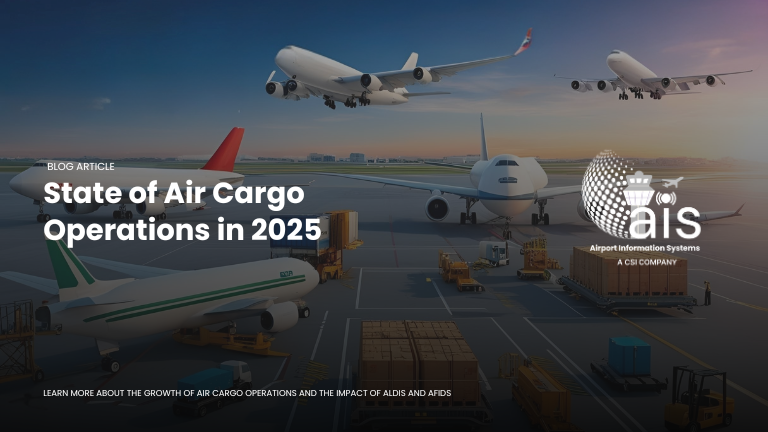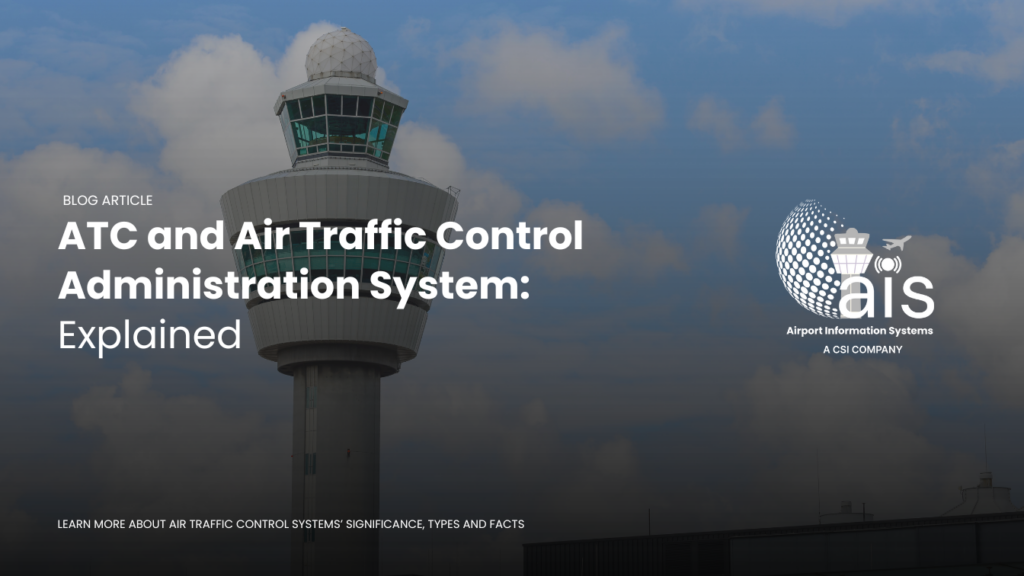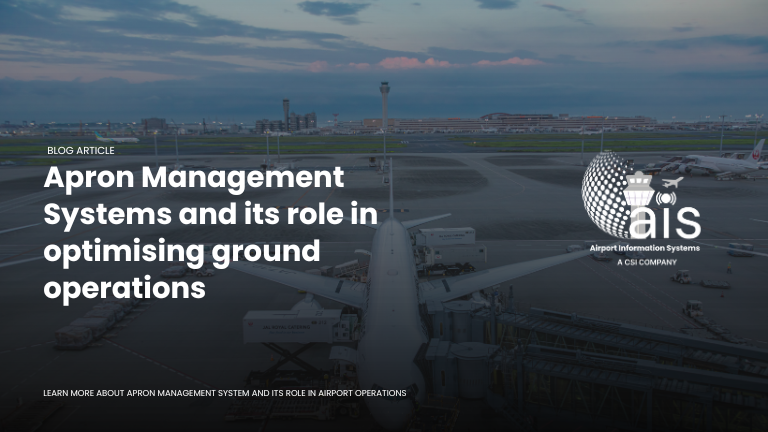Introduction
Air cargo operations encompass the transportation of goods via aircraft, including air freight, express shipments, and airmail. This mode of transport is crucial for moving high-value and time-sensitive goods across the globe, supporting industries ranging from pharmaceuticals to e-commerce.
According to the International Air Transport Association (IATA), the air cargo industry is projected to experience a 5.8% year-on-year growth in 2025, reaching a total volume of 72.5 million tonnes. This surge is largely driven by the rapid expansion of e-commerce, particularly from Asia, and shifts in global supply chains. Despite this growth, the industry faces challenges such as capacity constraints, regulatory complexities, and security concerns.
This blog delves into the current challenges confronting air cargo operations and explores innovative solutions shaping the industry’s future.
Key Challenges in Air Cargo Operations
Air cargo operations continue to grapple with a complex array of challenges at this juncture. Global demand for air cargo remains robust, driven by factors such as e-commerce growth, supply chain diversification, and geopolitical shifts. However, the industry’s ability to adapt to these evolving dynamics is increasingly being tested. Infrastructure bottlenecks, evolving regulatory landscapes, and escalating security threats are converging to create operational friction across the air freight ecosystem.
Infrastructure Limitations and Capacity Constraints
The surge in air cargo demand has outpaced the development of airport infrastructure. In 2025, available cargo capacity is projected to grow by only 4.4%, which is insufficient to meet the rising demand. This imbalance leads to congestion, delays, and increased operational costs. Therefore, airports are exploring off-airport processing facilities to alleviate pressure. However, this approach introduces challenges in maintaining secure and efficient transport between off-site warehouses and airside operations.
Regulatory Complexities and Compliance Issues in Air Cargo Operations
Alongside infrastructure pressures, navigating the increasingly intricate global regulations presents another formidable challenge for air cargo operators. Today, air freight regulations place greater emphasis on safety, environmental concerns, and data protection. Consequently, nations and trade regimes are revising customs procedures, demanding improved documentation and greater control over hazardous materials and dual-use goods. Furthermore, the widening of global sanctions driven by ongoing geopolitical tensions requires strong compliance structures, like denied party screening, to keep up with rapidly shifting sanction regimes.
Security Concerns and Cargo Theft Risks
Ensuring the security of high-value and sensitive cargo is critical. Alarmingly, cargo theft incidents surged by 27% last year, with criminals employing increasingly sophisticated tactics, including strategic thefts involving deception and fraud. To bolster cargo security, the UK Department for Transport mandates the use of approved security screening equipment that meets national and international performance standards. This includes advanced technologies such as Explosive Detection Systems (EDS) and Explosive Trace Detection (ETD) systems. Moreover, the growing threat of cybersecurity breaches adds another layer of risk to air cargo operations. Digital systems are becoming prime targets for attacks that can disrupt operations and compromise sensitive information.

Explosive Detection Systems (EDS) installed at Hazrat Shahjalal International Airport | Credit – Daily Sun
Addressing these challenges requires a multifaceted approach, combining infrastructure investment, regulatory compliance, and advanced security measures. Furthermore, stakeholders in the air cargo industry must proactively adapt to evolving demands. This approach enhances resilience and ensures the efficient movement of goods in increasingly complex air cargo ops.
Emerging Technologies Transforming Air Cargo Operations
Air cargo operations are evolving rapidly, driven by the critical need to address operational inefficiencies and growing trade volumes. To begin with, predictive analytics is used to forecast cargo demand and optimise flight scheduling, thus helping airports allocate resources more effectively. Meanwhile, blockchain technology enhances shipment tracking by providing secure, tamper-proof transaction records, strengthening regulatory compliances. In addition, real-time monitoring systems enable operators to detect delays or temperature deviations early, safeguarding the quality of sensitive shipments. Furthermore, automated billing platforms are reducing manual errors and accelerating payment cycles, improving overall financial management. Collectively, these innovations are helping air cargo operators build more resilient, secure, and efficient supply chains.
Adoption of Artificial Intelligence (AI) for Predictive Analytics
Artificial Intelligence (AI) is revolutionising air cargo operations through predictive analytics that forecast demand patterns, optimise routing, and enhance decision-making processes. For instance, AI algorithms analyse historical shipment data to predict peak periods, allowing for better resource allocation and minimising delays. Logistic companies are increasingly investing in AI-driven tools to improve operational efficiency and reduce costs. Accordingly, the global AI market in logistics is projected to reach $348.62 billion by 2032, highlighting the sector’s growing commitment to technological innovation.
Implementing Blockchain to Manage Cargo Records and Simplify Compliance
In air cargo operations, blockchain technology addresses critical challenges such as documentation errors, compliance delays, and fraud. Implementing blockchain enables the creation of a decentralised, tamper-proof ledger that records every transaction and shipment movement. This approach ensures that all stakeholders, including airlines, ground handlers, and customs authorities have access to a single, immutable source of truth.
For example, at Heathrow Airport, airlines utilising blockchain-based supply chain management solutions have reported a 7% reduction in cargo handling costs and a 90% decrease in communication errors. These improvements stem from enhanced transparency and real-time data sharing, which streamline operations and reduce administrative overhead. Furthermore, the integration of blockchain has led to a 28% reduction in loading times and an 83% decrease in manual documentation efforts, freeing up resources for more productive tasks. Reaffirming the stats, almost 70% of logistics firms planning to implement AI in blockchain-based systems. Also, the adoption of blockchain facilitates faster customs clearance by providing verifiable, real-time access to shipment data.
Smart Cold Chain Management for Perishable Goods
Efficient cold chain management is vital in air cargo operations, particularly for transporting temperature-sensitive goods like pharmaceuticals and perishables. The integration of airport tech like Internet of Things (IoT) sensors, real-time monitoring systems, and specialised insulated containers, ensures temperature-sensitive products maintain required temperature ranges throughout transit. For instance, IoT-based monitoring allows for continuous tracking of temperature and location, enabling immediate corrective actions if deviations occur. Airlines and cargo operators prioritise rapid handling procedures, including quick ramp transfers and minimised storage times, to reduce exposure to ambient conditions. These measures collectively enhance the reliability and integrity of temperature-sensitive shipments in the air cargo industry.
Importance of Automated Billing and Real-Time Data Management
In air cargo operations, precise billing and immediate access to data are essential for maintaining operational efficiency and financial stability. Automated billing systems eliminate manual errors, accelerate revenue collection, and provide transparency in charging for services like landing, parking, and handling. Similarly, data processing enables proactive decision-making by offering dynamic real-time insights into flight movements, cargo handling statuses, and resource allocation. These capabilities are essential to minimise delays, optimise cargo flow, and maintain compliance with regulatory standards.
Thus, embracing AI, blockchain, IoT technologies, and automated digital systems empowers air cargo stakeholders to strengthen operational workflows and ensure regulatory compliance. Furthermore, these technologies also improve financial transparency and help maintain the highest standards of cargo integrity across the supply chain.
ALDIS and AFIDS in Air Cargo Operations
Efficiency and accuracy are crucial in air cargo operations, and Airport Information Systems (AIS) play a key role in optimising these aspects through two primary solutions: Airport Landing Dues Information System (ALDIS) and Airport Flight Information Display System (AFIDS). AFIDS tracks cargo movement within the airport, including arrivals and departures, providing real-time data on cargo location and status. This data is then used by ALDIS to automate billing based on various factors such as cargo load, wait-time at the airport, and handling services. ALDIS ensures accurate invoicing by calculating charges related to landing fees, parking, and other operational factors, streamlining the financial processes and reducing manual errors. Together, ALDIS and AFIDS enhance operational efficiency, improve billing accuracy, and ensure seamless coordination in managing air cargo logistics.
AFIDS: Real-Time Data Management for Air Cargo Operations
AFIDS (Airport Flight Information Display System) serves as a real-time data collection and processing platform, crucial for the dynamic nature of air cargo logistics. It captures essential information such as block on/off times, aircraft registrations, runway usage, and estimated/actual arrival and departure times. This data is vital for accurate invoicing through ALDIS and for operational coordination among departments like Air Traffic Control and handling agents. In addition, supporting data entry in ICAO or IATA formats and in UTC or local time, AFIDS ensures seamless communication and timely decision-making across various stakeholders.
ALDIS: Precision in Aeronautical Billing for Cargo Flights
ALDIS (Airport Landing Dues Information System) is a robust aeronautical billing engine tailored to the complexities of air cargo operations. It automates invoicing for various services, including landing and parking fees, fuel charges, and specialised services like de-icing and ground power usage. The system’s flexibility allows for multiple billing models, standard rates, flat rates, and operator-specific charges, catering to the unique requirements of cargo carriers. Advanced features such as multi-currency invoicing, support for up to nine levels of sales tax, and email delivery of invoices streamline financial processes, reducing manual interventions and enhancing accuracy.
The integration of AFIDS and ALDIS offers a comprehensive solution for air cargo operations. Real-time data captured by AFIDS feeds directly into ALDIS, ensuring that billing reflects actual services rendered without delay. This synergy minimises errors, accelerates revenue collection, and enhances transparency. Moreover, the systems’ configurability allows for tailored solutions that adapt to the specific needs of cargo operators, facilitating efficient resource allocation and operational planning.
Conclusion
In summary, air cargo operations are evolving in response to rising demand and complex challenges. These challenges include capacity constraints, regulatory shifts, and security risks. To address these issues, the industry is increasingly adopting technologies like AI for predictive analytics, blockchain for secure and transparent transactions, and IoT for real-time monitoring. Furthermore, the importance of automated billing and real-time data management has become evident in ensuring operational and financial efficiency.
AIS’ solutions for air cargo operations play a critical role in backend operations, specifically ALDIS and AFIDS. AFIDS tracks the movement of cargo, both inbound and outbound. Additionally, ALDIS automates billing based on parameters including cargo load and wait-time at the airport. Together, these systems streamline cargo tracking, optimise billing, and ensure smooth coordination, helping airports enhance decision-making and improve revenue management. Ultimately, embracing these innovations is essential for building a resilient, agile, and future-ready air cargo ecosystem.
Optimise your air cargo operations. Switch to automated billing and real-time data visibility today.


